#language
Text
important ! In recent years especially this year I’ve noticed a lot that the internet language picked up so many Islamic phrases and, from a muslim perspective, it makes the internet a little more welcoming.
the thing is, a lot of the time with Islamic phrases you have to be careful about when and where to say them they hold their own weight and demand their own respect so here is a list explaining each phrase and some notes about it.
In sha allah
It means “ If God wills “. Muslims say it because we’re unaware of what future holds it’s actually blasphemous to claim to know the future, so saying so means “ If it’s the will of god it will happen if not it won’t “ and you’d say it about future events.
side note, it’s also a polite way of saying No. for example, someone asks you to do something and you say in sha allah. Technically you’re not saying yes or no, and if it’s not in god’s will it won’t happen.
Ma sha allah
It means “ this is what god intended “ and it’s a compliment. Saying so is like saying WOW! But it’s also kind of a prayer of protection? If I see someone with pretty hair I should say “ Ma sha allah your hair is very pretty “ the ma sha allah protects the person from the evil eye. By saying that I’m also saying I’m not jealous I’m genuinely enamored and I don’t wish any harm to go to it.
Astagfurullah
it means “ to god I repent “ or “ from god I seek forgiveness” it’s usually used when you make a mistake but people also use it when they see something bad or when they want to avoid saying something bad. Like once my card refused to work and I’d say that so I won’t say any curse words and to calm down my anger
wallah/wallahi
okay this one is important. This one shouldn’t be used so lightly. It means “ by god’s name “ and it’s basically swearing in Allah’s name. You are only supposed to say it if you genuinely mean what you’re saying. It’s such a heavy word that I only say it very rarely and if you say it and don’t follow up on what you said you have to fast for three days as repentance.
ya allah
ya is an addressing word? Like talking to someone or calling them? Like saying O’ ( someone ) so ya allah means O’ god
Al hamdullilah // hamdullilah
it means ‘ praise/thanks to god ‘ said when something good happens or when you feel relieved about something— for example, my shirt is stained badly and I’m worried it won’t clean well. I clean it and the stain is gone so I say “ al hamdullilah “ kind of like phew!. Sometimes people say it as an answer when they’re asked how they are it can either mean things are good or bad but we preserve .
One more note is that with the name of Allah you should also be careful it’s not supposed to be written on papers that’ll get stepped on or lightly used in art because it also has its own weight it’s regarded heavily. Like even in home decorations it should be elevated and not overshadowed. If I have to throw away a paper I have to sit down and color over the name of Allah or burn the papers so it won’t get thrown in trash.
another note is that those phrases aren’t Muslim exclusive. Some Arab non-Muslims use them as well. This is only my explanation from a Muslim perspective.
Another another note is this is what I can remember at the moment but if you have additions or enquiries let me know
740 notes
·
View notes
Text
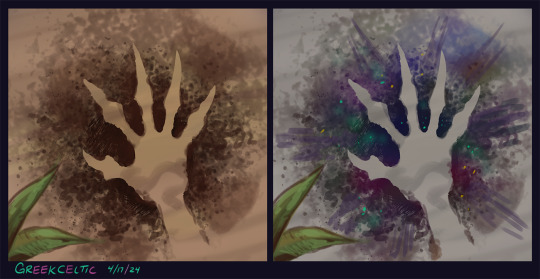
I was watching a video about cave paintings and came away thinking about dragon hobo signs
334 notes
·
View notes
Text
"these fantasy nomads are so violent... There are 6 words to say kill in their language" Japanese has 5 or so different words to mean "hard/sturdy" do you think everything and everyone over there is just built different or
#allegedly mine#language#Just remembered that shit with the Dothrakis or whatever in GoT#This is so stupid it becomes funny
102 notes
·
View notes
Text
THOU, THEE, THY, THINE. SAME THING RIGHT?
NO.
Although they seem very similar, Shakespeare would be in tears if he saw how most people mix them up. lets save William the misery and teach you when to correctly use thou, thy, and thine.
THOU
Thou = You (in subject form)
"Thou art killing me."
"Art Thou crying?"
THEE
Thee = You (in object form)
"I want to kill thee."
"My dog ate thee in my dream."
THY
Thy = Your (before a word that starts with a consonant)
"Thy mother."
"Give me thy duck."
Thyself is used the same as any other thy+word combination like "thy mother" but without a space
"Take care of Thyself."
THINE
Thine = Your (before a word that starts with a vowel)
"Thine unibrow is evident."
"Thou art on thine own."
Now Shakespeare can truly rest in peace.

Go follow me @leisureflame for more posts like this!
89 notes
·
View notes
Note
The craziest nickname i know of even more of of leftfield than Peg for Margaret, is Tuck for William. Can you explain where that one came from?
While I've seen a few scattered Williams who go by Tuck, I've never seen any formal association with the name William.
I feel like English has too many terms for nicknames (diminutive, hypocorism, sobriquet, pet name, etc.) which either have no firm definitions, or they have definitions that largely overlap - which leads to a lot of confusion as to exactly what type of nickname you're talking about.
For example: my given name is Samantha, but my family calls me Sissy. Sissy is my (a person named Samantha's) nickname, but that doesn't mean Sissy is a nickname for Samantha.
So while Tuck may be a person named William's nickname, it isn't a nickname for William (at least not that I've ever come across).
And Peg may seem odd, but it's actually pretty straight-forward linguistically:
Margaret was shortened Marg, Marg became Mag due to many British dialects lacking rhoticity, Mag became Meg as a result of the Great Vowel Shift, and Meg rhymes with Peg and people really, really like rhyming stuff.
76 notes
·
View notes
Text
https://stephanie-528.mxtkh.fun/jr/2TE5ShN
https://stephanie-528.mxtkh.fun/jr/2TE5ShN
#cosmos#language#skincare#cole sprouse#gordon ramsay#gravitational waves#outfit#surfing#swtor#morpheus#void state#kokichi ouma#santa clarita diet#vld#alex morgan
124 notes
·
View notes
Text
#beautiful model#icon#enako#gorou#the god of arepo#tmnt 2018#Tesla#tails the fox#hairyscruffguys#language#sandra oh#afterdarkreblogs#healthy snack
122 notes
·
View notes
Text
https://catherine-025.mxtkh.fun/f/UZ6HlaL
#enako#gorou#the god of arepo#tmnt 2018#cosmos#dj#language#afterdarkreblogs#healthy snack#cole sprouse#lawlu
127 notes
·
View notes
Text
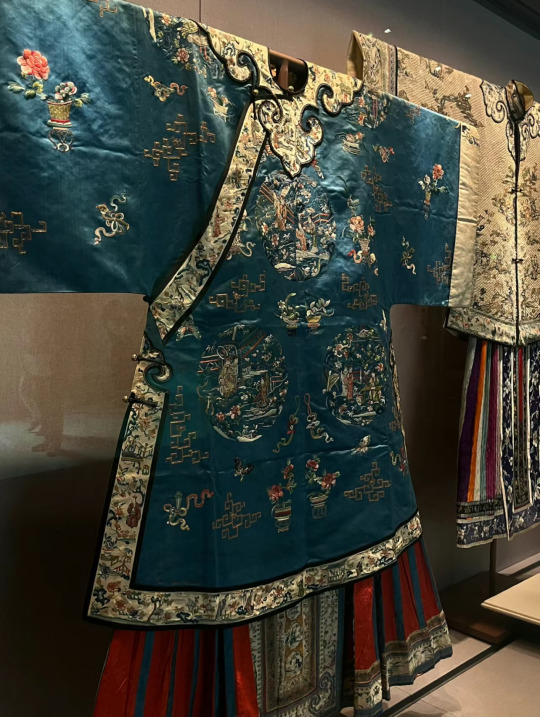
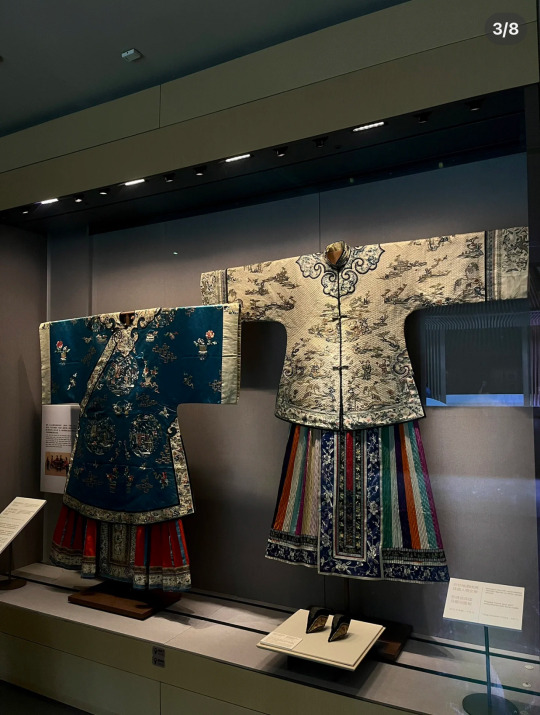
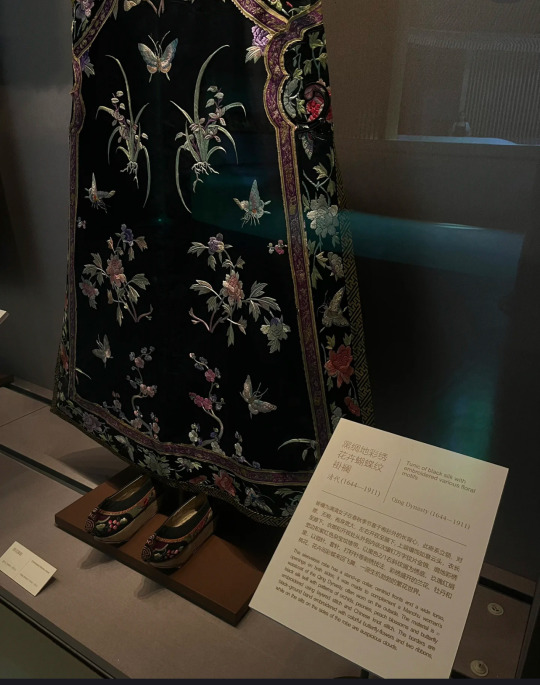
Qing Dynasty hanfu (1644-1912) Silk Museum of HangZhou (杭州丝调博物馆)
#china#chinese history#history#qing dynasty#education#language#archaeology#etymology#hangzhou#qing#artifacts#historical#historical clothing
52 notes
·
View notes
Text
The word knight sounds like night but it's written with a K. That's because it used to start with a [k] sound, just like German Knecht, which has the same Proto-Germanic ancestor. The letters GH used to be pronounced as well. The video lets you hear the reconstructed evolution of knight from Proto-Germanic to Southern British English.
The common Proto-Germanic ancestor of knight, German Knecht and Dutch knecht meant 'boy; servant; attendant'. In Middle English, knight came to denote an attendant who became a soldier, and subsequently a soldier who became a nobleman through knighthood.
#historical linguistics#linguistics#language#etymology#english#old english#middle english#early modern english#proto-germanic#proto-west germanic#lingblr
53 notes
·
View notes
Text
Drew this for five extra credit points in my German class. It took an hour :’)
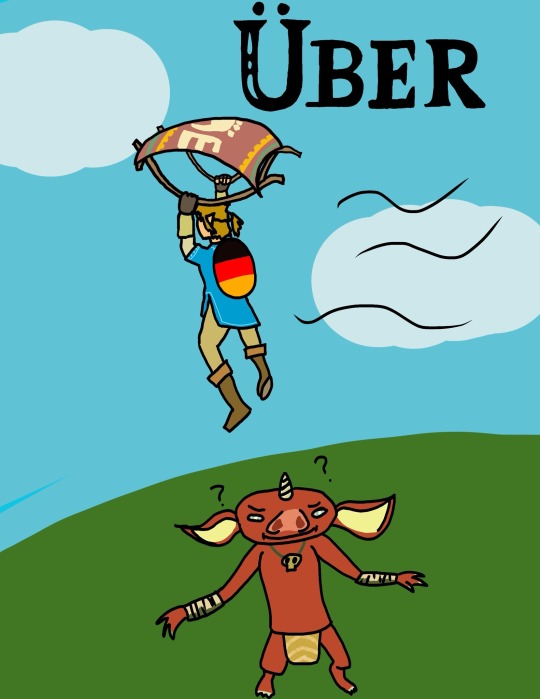
#German#German class#über#link#legend of Zelda#breath of the wild#legend of zelda breath of the wild#paraglider#bokoblin#poster#Akkusativ#accusative#prepositions#language#extra credit#fanart#shitpost#artwork#art
23 notes
·
View notes
Note
Finally saw Dune Part Two, and the awesome work you and @quothalinguist did with Chakobsa left me speechless!! Just a quick question: in the film, it's mentioned that Stilgar speaks with a southern accent. Was such a phonology developed or was there only one used throughout the film? Thanks!
I think that was just something they made up due to the fact that Javier Bardem has a different accent when speaking English from many of the other people who play Fremen.
22 notes
·
View notes
Text
Translation in English
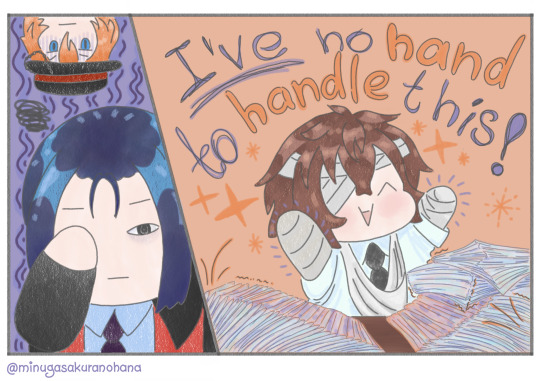
Я думала, как перевести на английский фразу "У меня лапки", и получилось что-то такое) По-моему " I've no hand to handle this" можно идеально пропеть с интонацией Дазая.
♪ヽ(*´∀`)ノ
Once I drew Atsushi in the same situation with caption "У меня лапки", "I have paws". In Russian it means «I've no hand, only paws and I can't do humans things like " Work" or "Job"». And now I made picture with Dazai.
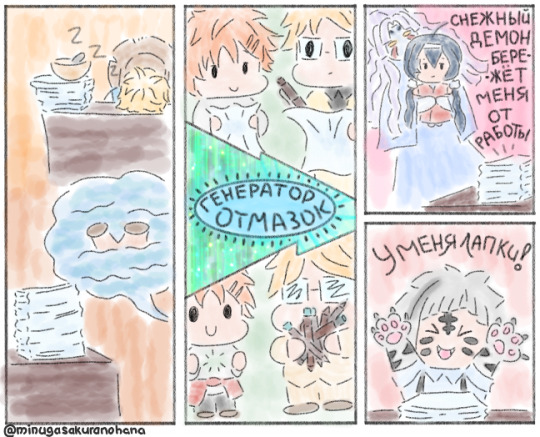
And Kyouka says «Demon snow don't want me to work»
Them all are trying to find a way not to work)
#bungou stray dogs#турумбочка#bsd#bsd fanart#art#проза бродячих псов#bsd dazai#бсд#bsd mori#bsd chuuya#bsd kyouka#bsd atsushi#bsd kunikida#bsd tanizaki#bsd kenji#bsd demon snow#bsd memes#english#russian#language#translation
40 notes
·
View notes
Text
Okay, but what if I needed to add some etymology at the beginning of every chapter, would you still love me?
#writers on tumblr#writers and poets#writeblr#creative writing#novel writing#ivatalks#im sorry im like this#please dont leave me#symbolism might be the core of my prose poetry idk man#etymology#linguistics#language#my degree is haunting me
20 notes
·
View notes
Text

I feel like the “haha German funny” crowd might appreciate this
20 notes
·
View notes
Note
Did Jack not come from the French version of john 'Jaques'?
This is a centuries' old scholarly debate, the short answer of which is most likely no.
First off a correction - Jacques is actually the French form of James, not John (which is Jean).
There appears to have been some discussion in the 19th century as to whether Jack may have originated as a nickname for James and only became associated with John later on (much as Hank originated as a nickname for John before it became associated with Henry) - but later research seems to discount this theory.
The seminal work on this subject is a paper/booklet titled The Pedigree of 'Jack' and of Various Allied Names written by English librarian E. W. B. Nicholson in 1892.
In his research Nicholson found "no recorded instance of Jack, Jak, Jacke or Jakke ever being used to represent Jacques or James".
That being said - names don't develop in a vacuum, nor in laboratory conditions. It's entirely possible that Medieval Englishmen being exposed to the name Jacques influenced the shortening of Jackin to Jack - but short of a time machine trip to ask someone why they chose to go by Jack and not Jackin, it's kind of impossible to prove one way or another.
78 notes
·
View notes